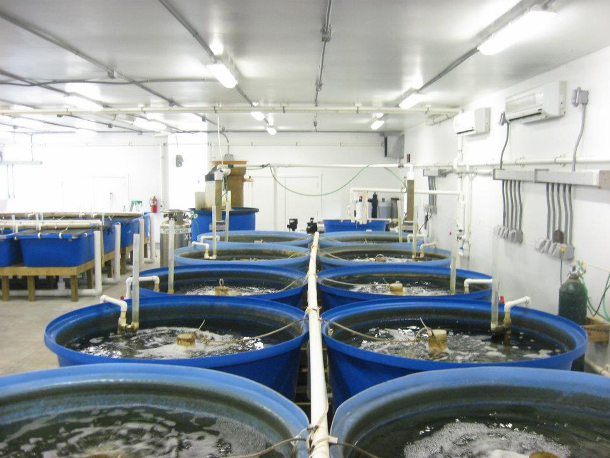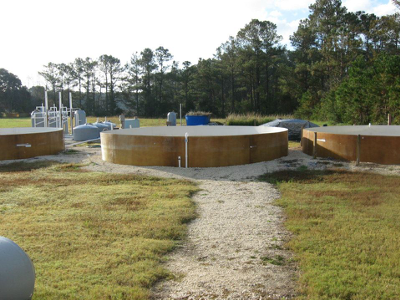Marine Aquaculture Research Center (MARC)
go.ncsu.edu/readext?723448
en Español / em Português
El inglés es el idioma de control de esta página. En la medida en que haya algún conflicto entre la traducción al inglés y la traducción, el inglés prevalece.
Al hacer clic en el enlace de traducción se activa un servicio de traducción gratuito para convertir la página al español. Al igual que con cualquier traducción por Internet, la conversión no es sensible al contexto y puede que no traduzca el texto en su significado original. NC State Extension no garantiza la exactitud del texto traducido. Por favor, tenga en cuenta que algunas aplicaciones y/o servicios pueden no funcionar como se espera cuando se traducen.
Português
Inglês é o idioma de controle desta página. Na medida que haja algum conflito entre o texto original em Inglês e a tradução, o Inglês prevalece.
Ao clicar no link de tradução, um serviço gratuito de tradução será ativado para converter a página para o Português. Como em qualquer tradução pela internet, a conversão não é sensivel ao contexto e pode não ocorrer a tradução para o significado orginal. O serviço de Extensão da Carolina do Norte (NC State Extension) não garante a exatidão do texto traduzido. Por favor, observe que algumas funções ou serviços podem não funcionar como esperado após a tradução.
English
English is the controlling language of this page. To the extent there is any conflict between the English text and the translation, English controls.
Clicking on the translation link activates a free translation service to convert the page to Spanish. As with any Internet translation, the conversion is not context-sensitive and may not translate the text to its original meaning. NC State Extension does not guarantee the accuracy of the translated text. Please note that some applications and/or services may not function as expected when translated.
Collapse ▲The North Carolina State University Marine Aquaculture Research Center (MARC) was founded in 2009 in part from a generous donation from Dr. IJ and Sue Won of Marshallberg Farm and support from the North Carolina Agricultural Foundation. The MARC facility, located in Smyrna, NC (Carteret County), is a Department of Biological and Agricultural Engineering field laboratory that focuses on recirculating aquaculture research of marine species, including culture of finfish, shellfish and aquatic plants; waste treatment of aquaculture byproducts; and extension to clients and the public on aquaculture and related topics.

MARC site buildings
The Marine Aquaculture Research Center (MARC) is located on a six-acre campus at the head of Sleepy Creek between the towns of Smyrna and Marshallberg in Carteret County, North Carolina. The facility consists of two 4200 square foot buildings. The first building contains a water quality wet chemistry lab, a 12 tank circulating system consisting of 300-gallon tanks, a 12 tank recirculating system consisting of 170-gallon tanks, a three-tank recirculating system consisting of 800-gallon tanks, and a well-stocked shop for system repair and fabrication. Building number two contains six 3000 gallon tanks and six 240 gallon tray-style tanks. Building two has a flexible, open footprint and can be used for special projects.

RAS tank system
The facility is capable of running systems at salinities ranging from freshwater all the way to full-strength saltwater. Saltwater is obtained, treated, and stored from nearby Sleepy Creek. A wastewater system filters water to be returned to Sleepy Creek. The facility also features a 14kW wind turbine and 8kW solar array, which supplement and offset energy use at the facility with renewable energy. MARC also has a back-up generator capable of powering the entire facility in the case of power outages.

Water treatment tanks
The MARC facility specializes in production style research emulating conditions relatable to commercial aquaculture production. Researched marine finfish species at MARC have included striped bass and their hybrids, red porgy (in conjunction with NOAA), baitfish, red drum, black drum, sturgeon, spots, croakers, sheepshead, and more.

Fish cultured at the MARC facility
University conducted research has included numerous feed formulation grow out trials (soy replacement, pre/pro-biotics), growth study comparison of hybrid striped bass and striped bass, grow out studies of domesticated lines of striped bass, red drum and black drum candidate feasibility studies, live bait baitfish culture and more.
Past collaborations have included feed trials for Zeigler Bros. Inc. and Skretting Feed as well as product implementation and testing for Pentair.
Marine Aquaculture Research Center Staff
-Dr. Steven Hall, MARC Director Extension Associate and Research Investigator
Professor, NC State University BAE
-Mike Frinsko Aquaculture Specialized Agent-SE District and Research Investigator
-Ryan Kelly MARC Facility Manager and Extension Associate
Research Technicians:
-Thomas McArthur
-Leeanna Bunch
-Donovan Willis


